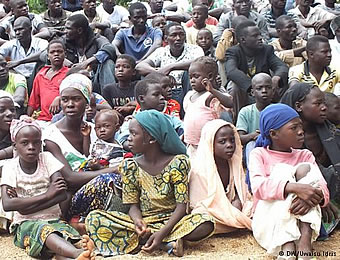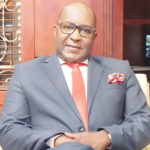THE chairman of the Independent National Electoral Commission (INEC), Professor Mahmood Yakubu, has confirmed that Nigerians who have been displaced by conflicts and terrorism will be allowed to vote in the Internally Displaced Persons (IDP) camps where they currently live. INEC has even reportedly gone ahead to develop and validate with some stakeholders, a framework for eligible voters in the camps to exercise their franchise in the 2019 elections. This is ordinarily a welcome development because it will be unfair to prevent the IDPs from participating in crucial leadership recruitments owing to circumstances that are clearly beyond their control. However, there has been a deluge of criticisms of INEC’s decision, especially from the opposition parties and some civil society organisations (CSOs). The bone of contention is two-fold: the perception that votes in the IDP camps are subject to manipulation and the thesis that the IDPs are ineligible to vote under the extant electoral law.
Of greater concern however is the fear that unscrupulous politicians may seize the opportunity of voting in the camps to perpetrate electoral heist. The Peoples Democratic Party (PDP), the main opposition party in the country, is already insinuating that foreigners from neighbouring countries may walk into the IDP camps on election days to vote without being molested. Such suspicion may have been further heightened by the presence of two Nigerien state governors at the All Progressives Congress (APC) rally in Kano, Kano State, last week. This is where INEC comes in; it must ensure the credibility of elections in IDP camps. The security situation must not be exploited as an excuse to undermine the credibility of the election.
There must be a level-playing field for all the political parties, which is why the exercise must be monitored by local and foreign observers. INEC should ensure that voting is not rigged in favour of the ruling party, as alleged by the opposition. To be sure, we are by no means opposed to IDPs voting but we expect the exercise to be transparent, free, fair and credible to put a lie to the fears in some quarters that the whole essence of voting in IDP camps is to rig the election in favour of a political party. Again, we also expect the electoral body to have covered all the legal issues involved so that if the conduct of elections in the camps becomes the subject of litigation, there would be a legal plank upon which it can rest.
Based on INEC’s proposed framework, the intrastate IDPs will vote in all elections while their interstate counterparts will vote in the presidential election only. That would appear fair enough but it should be distilled further that even the intrastate IDPs may not be able to vote for candidates from constituencies outside the ones where they are camped, except for the office of the state governor who has the whole state as his/her constituency. Overall, the genuineness of INEC’s intention and transparency of the process are crucial. It is imperative that INEC makes public the number of eligible voters in each of the IDP camps so that election results emanating from them can be related to the population of eligible voters. Also, other than allowing the IDPs to vote where they are, no other waiver outside the extant laws should be granted. The laid down procedures must be followed strictly. This has become important given the information from the electoral umpire that more displaced persons will vote in the February and March elections than in 2015, a time which was supposedly the height of insecurity in the land.
In the 2015 elections, IDPs voted in the three North-East states of Bornu, Yobe and Adamawa but now, IDP voting is expected to take place in 15 states. INEC claimed that this was as a result of the cumulative effects of insurgency in the North East, farmers/ herders’ clashes in the North Central, banditry in the North-West and communal conflicts and environmental issues in the South-East. This is somewhat strange as it tends to belie the official claim of significant reduction in security threats in the country. Notwithstanding, we commend INEC for its commitment to ensuring that neither displacement nor disability prevent eligible Nigerians from exercising their franchise. While pursuing this commitment, however, INEC should also take all necessary measures to ensure that the credibility of the 2019 elections is by no means vitiated.






